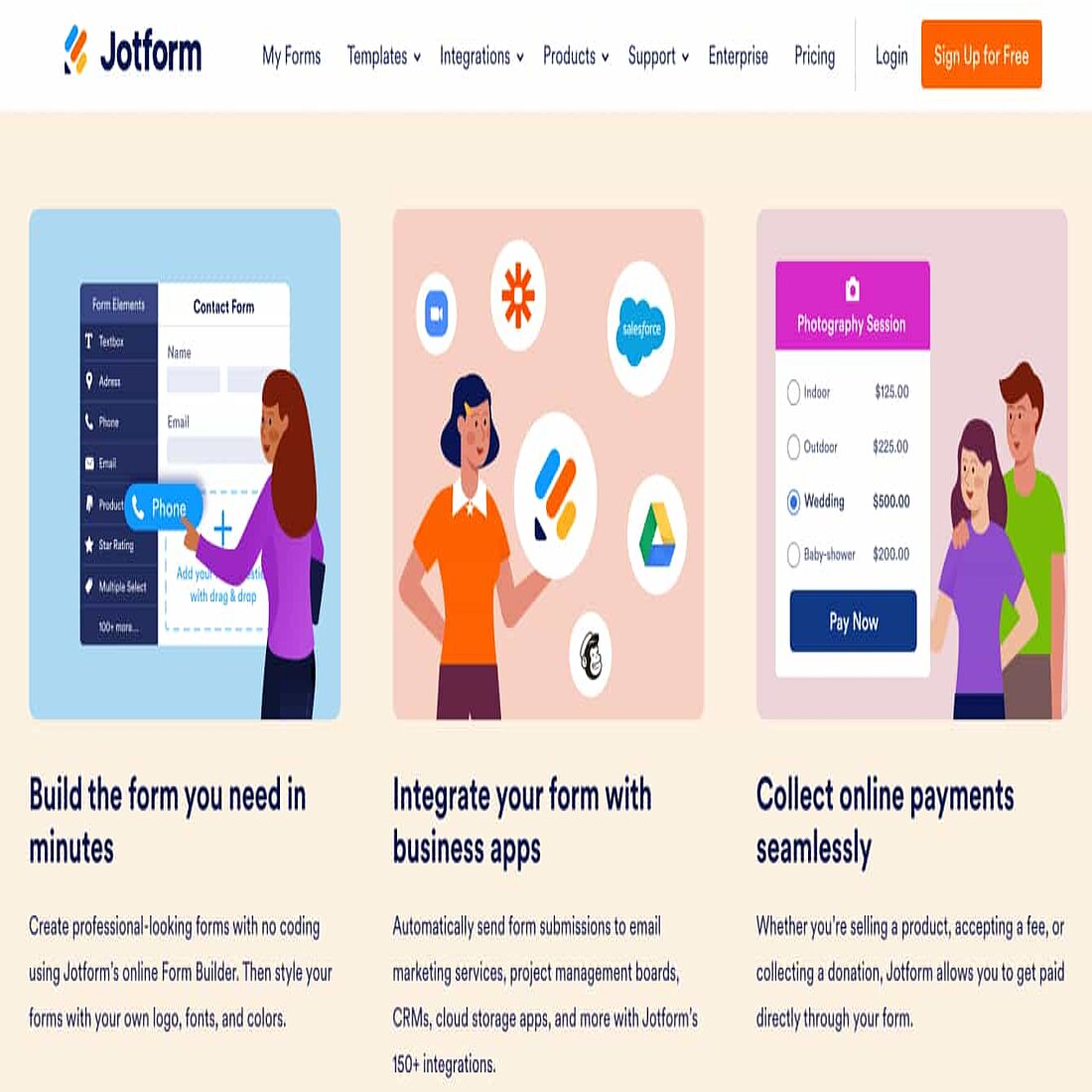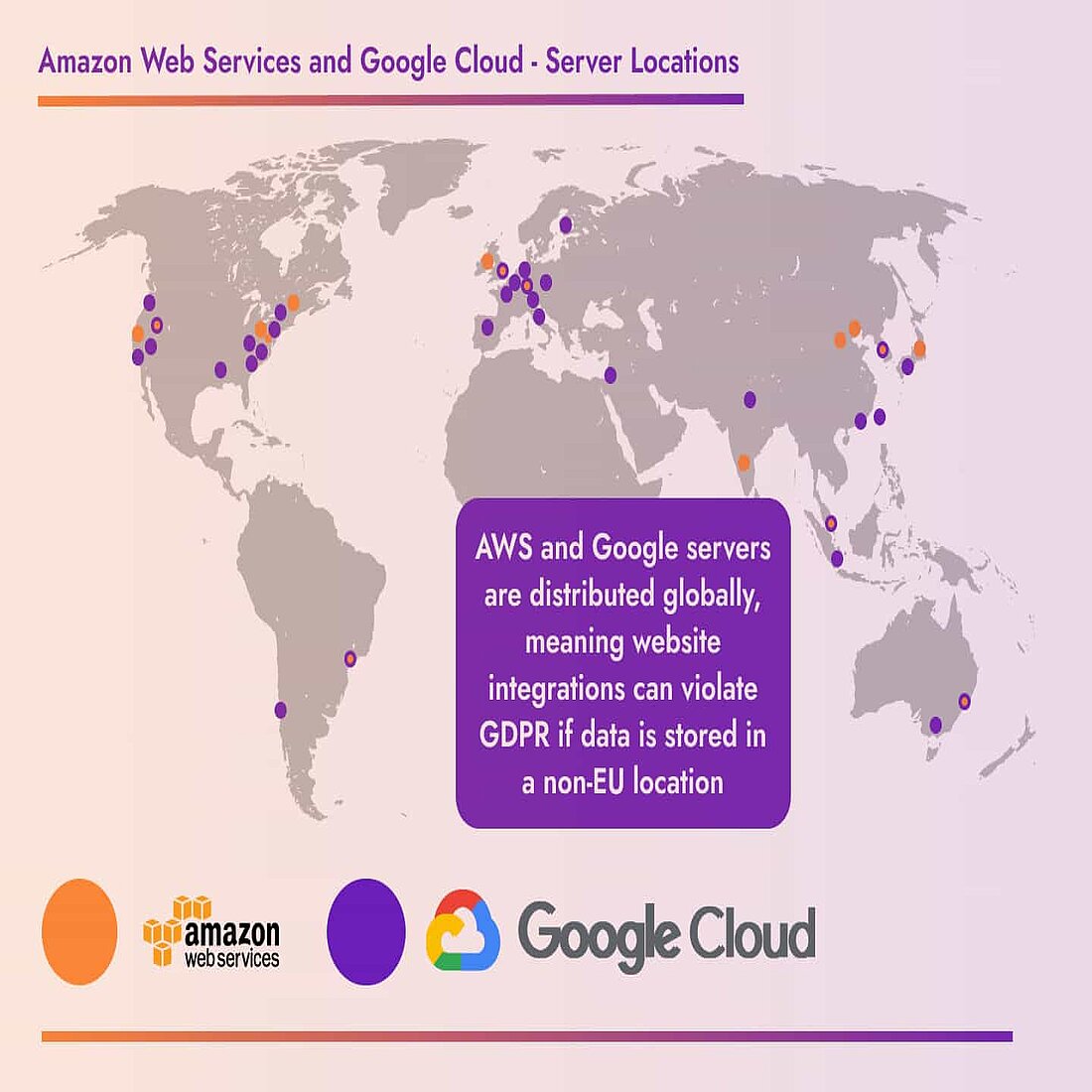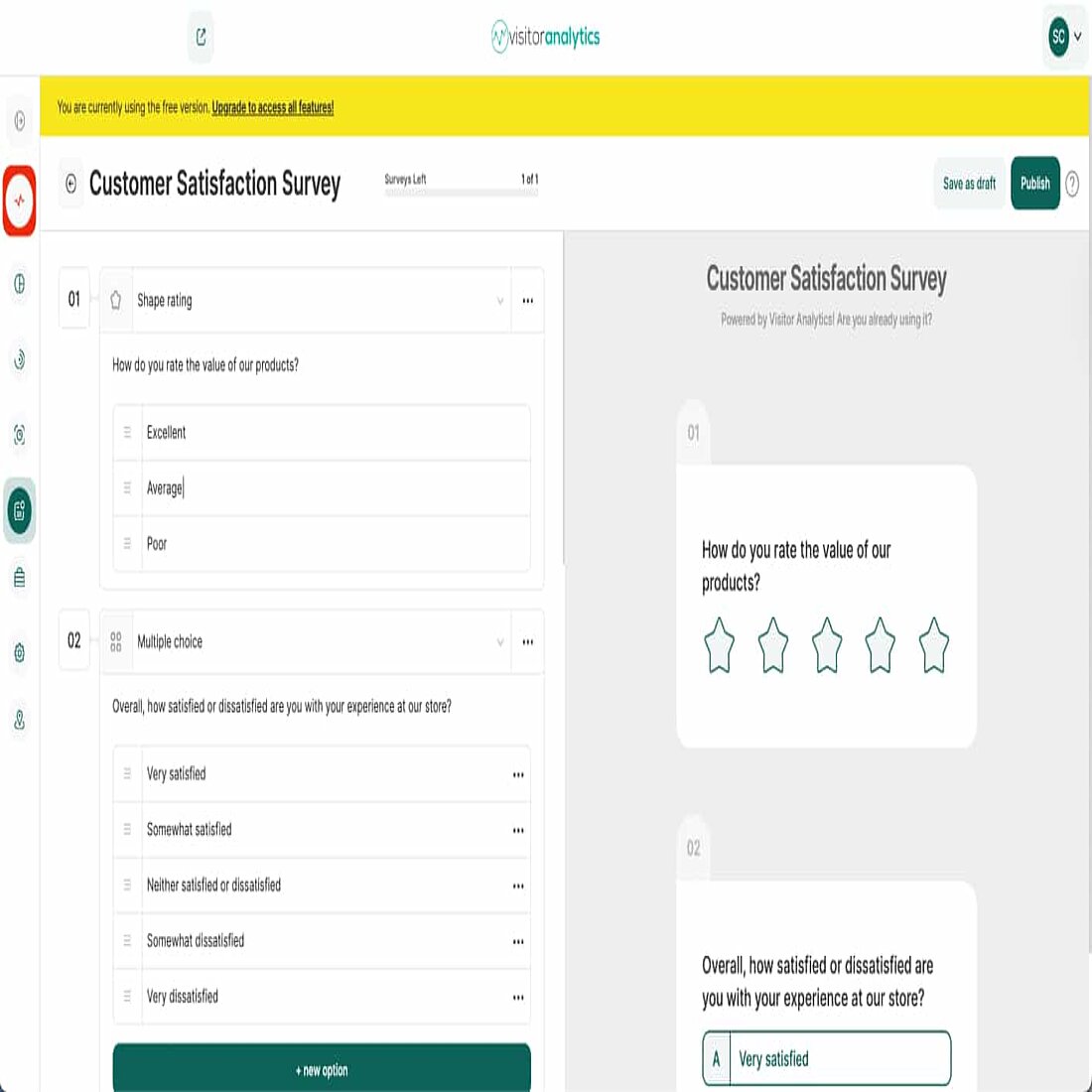- Why Us?
- Features
White Label
For SaaS Platforms & Agencies
Provide our complete analytics suite to your clients, directly within your own interface and with your/their own branding. Discover Analytics-as-a-Service and White Label Analytics. Great benefit, minimal effort.
- Pricing
- White Label
- Success Stories
- Partner
- ResourcesExpand Your Knowledge
CONTENTS
- What is Jotform?
- Understanding GDPR
- Is Jotform GDPR Compliant?
- Importance of GDPR Compliance in Online Form Builders
- What About User Consent?
- The Need for GDPR-Compliant Surveys
- TWIPLA: A GDPR-Compliant Solution for Surveys
- That's Jotform's GDPR Compliance Explained!
- Frequently Asked Questions
- What is GDPR and why is it important for online form builders like Jotform?
- Is Jotform GDPR compliant?
- Do I need a privacy policy if I use Jotform on my website or app?
- Do I need a cookie banner if I use Jotform on my website or app?
- How can I ensure that the tools I use for my website are GDPR compliant?
- How does TWIPLA help with GDPR compliance?
- Can I use TWIPLA for conducting surveys?
Is Jotform GDPR Compliant?

Understanding the GDPR compliance of Jotform is crucial for the many businesses that use this tool to build forms online.
Data privacy is a pretty big deal, and it's becoming more and more important every day.
So is Jotform GDPR compliant?
The short answer is that the popular tool does help businesses to create online forms and surveys that meet many requirements of GDPR - something you can learn more about in our guide for marketers.
However, their data storage practices may fall short of expectations, and the collection of personal data does give businesses some compliance work of their own to do.
But if you want a longer answer, feel free to keep reading!

What is Jotform?
Let's start with the real basic.
Jotform is an online form builder. But it's not just any form builder. It's presently trusted by over 20 million users worldwide and offers more than 10,000 ready-made form templates.
In addition, it integrates with over 100 third-party apps and provides advanced design features. It serves as a versatile tool for creating everything from payment forms and lead generation forms to registration forms and application forms.
Jotform isn't just popular - it receives high ratings!
With a 4.5 rating from nearly 2,000 reviews on G2, it's clear that users appreciate its ease of use (9.3/10), customer support (8.8/10), and ease of setup (9.2/10).
And with a freemium option and a three-tier paid pricing plan that goes up to $129 a month, it's a flexible solution for organizations of all sizes.
Understanding GDPR
GDPR. It's a term you've probably heard before. But what does it mean?
The General Data Protection Regulation (GDPR) is a regulation enacted by the European Union to protect the privacy and personal data of EU citizens.
It's a big deal because it applies to any company that collects or processes the data of EU citizens, regardless of where the company is located.
We’ve already written extensively about the implications of GDPR for marketers but to distill it right down, GDPR is all about principles.
It requires processing personal data lawfully, fairly, and transparently, and you can use our GDPR compliance checklist to assess if your business processes are on point.
It also requires collecting data for specified explicit and legitimate purposes, ensuring it is adequate, relevant, and limited to what is necessary.
And there's more.
GDPR mandates accurate and up-to-date personal data, stored in a form that allows identification of data subjects for no longer than necessary, and processed in a manner that ensures appropriate security.
Finally, the regulation requires the data controller to be responsible for, and able to demonstrate compliance with, these principles.
And if you don’t do this, there are some penalties for non-compliance. The fines can be hefty - up to €20 million or 4% of the company's global annual turnover of the previous financial year, whichever is higher.
So as a result, it's crucial for businesses to choose tools that are GDPR compliant.

Is Jotform GDPR Compliant?
So, where does Jotform stand when it comes to GDPR compliance?
Well, Jotform has taken several steps to ensure it meets GDPR standards.
These include data encryption, transparency about data usage, and also giving users the ability to delete their data.
However, Jotform stores data on its servers, which are located on Amazon Web Services (AWS) and Google Cloud.
These different servers exist around the world, and both Amazon and Google have violated GDPR standards in the past.
This therefore make’s Jotform’s usage of these services a little suspect given the restrictions that GDPR places on transferring data outside of the EU.
Consequently, it's all the more important for businesses to do their own due diligence to ensure that Jotform is set up in a way that fully meets GDPR requirements.
Importance of GDPR Compliance in Online Form Builders
Online form builders like Jotform are often used to collect sensitive information.
As a result, it's crucial that these tools comply with GDPR.
But GDPR compliance isn't just about avoiding fines. It's also about building trust with users.
When users see that a form builder is GDPR compliant, they can feel confident that their data will be handled with care. This can lead to increased user engagement, higher form completion rates, and ultimately, better business outcomes.
Conversely, non-compliance can lead to hefty fines and damage to a company's reputation. In an era where data breaches and privacy scandals are all too common, businesses can't afford to take risks with user data.
As a result, it's essential to ensure that any online form builder they use is fully compliant with GDPR.
What About User Consent?
This is a big responsibility under GDPR for businesses that collect user personal data - something that online form builders like Jotform are built around!
Jotform uses cookies to collect personal data.
So if you’re using Jotform, you’ll consequently need to obtain what GDPR calls explicit, opt-in consent for any personal data that the integration collects.
Consequently, you’ll need a cookie banner in place. This invasive pop up informs website visitors about cookies, and should normally also include a link to your business’ cookie policy so that they can learn more about it.
This policy should clearly explain the data collected by Jotform and other cookie-collecting website integrations you've installed. It’ll also detail what happens to this data, and how users can update their consent or delete their data.
And unfortunately this isn’t just for customer awareness - it’s actually mandatory under data privacy laws like GDPR!

The Need for GDPR-Compliant Surveys
Surveys. They're a common feature of many websites, used to gather feedback, conduct market research, and more.
And just like online forms, any tool used to create and distribute surveys needs to be GDPR compliant.
Surveys are a great source of zero-party data - information provided directly by users, but they also collect personal data that can be used to identify internet users.
But under GDPR, this data must be collected and processed lawfully, transparently, and also securely.
Users must be informed about how their data will be used and must give their explicit consent for data collection. They also have the right to access, correct, and delete their data, and to object to data processing in certain circumstances.
So, when choosing a tool for conducting surveys, businesses must ensure that it not only offers the features they need but also complies with GDPR.
And that's where TWIPLA comes in!
TWIPLA: A GDPR-Compliant Solution for Surveys
TWIPLA is a privacy-flexible website analytics solution that can be seamlessly integrated into almost any website.
And while it is not an online form builder per se, it does provide a completely GDPR-compliant solution for conducting surveys and polls on your website - making it a great alternative to Jotform if you want to easily integrate customer feedback into website optimization activities.
Crucially, TWIPLA is built around a privacy center that enables businesses to calibrate functionality to local data privacy requirements.
It also avoids collecting cookies, eliminating the need for cookie banners.
TWIPLA comes fully compliant with all global data privacy laws straight out of the box, making it an ideal choice for businesses looking to conduct surveys while ensuring compliance with GDPR.
But that's not all.
In addition, TWIPLA also provides website statistics, visitor behavior analytics, and other direct communication tools for your website.
Over 2.5 million website owners across 190 countries trust our platform, and numerous global publications have featured it.
Ready to give TWIPLA a try? Sign up today and discover how it can help your business meet GDPR standards while gaining valuable insights from your website visitors.

That's Jotform's GDPR Compliance Explained!
To sum up, It’s great that Jotform has taken steps to ensure its compliance with GDPR.
But it doesn't have full compliance, and businesses consequently still need to conduct their own due diligence to ensure that they set up the tool in a way that meets their own GDPR requirements.
That said, tools like TWIPLA form part of the emerging privacy-conscious market of website integrations, and our platform offers a fully GDPR-compliant solution for conducting surveys.
This provides real peace of mind knowing that you can collect the customer insights you need while still keeping user data safe!
Remember, data privacy is not just about compliance - it's also about building trust with your customers.
So, choose your tools wisely.
Frequently Asked Questions
What is GDPR and why is it important for online form builders like Jotform?
GDPR is shorthand for the General Data Protection Regulation. It’s the EU’s data privacy framework that protects the personal data of its citizens. Now, for online form builders like Jotform, GDPR is a game-changer. They handle personal data, so they must comply with the GDPR rules to avoid hefty fines and maintain their users' trust. If you want to find out more about this law, try reading our informative GDPR and Data Privacy Resource Hub!
Is Jotform GDPR compliant?
In summary, Jotform is not completely GDPR compliant. They have admittedly sorted data encryption, they are crystal clear about how they handle data, and they allow users to delete their data. Conversely, their data storage practices are still a bit iffy, and the collection of personal data means that businesses still need to ensure they get consent from users.
As a result, and as always, it’s best to do a bit of sleuthing to ensure all the tools you're using are up to scratch with GDPR. But if you're looking for a survey tool that is GDPR-compliant, why not try out TWIPLA?
Do I need a privacy policy if I use Jotform on my website or app?
Yes, indeed! If you're using Jotform, or any other service that collects personal data on your website or app, it's essential to have a Privacy Policy. This policy should clearly explain what data you collect, why you collect it, how you use it, and how users can update or delete their data. It's not just a good practice - it's a legal requirement under laws like GDPR.
Do I need a cookie banner if I use Jotform on my website or app?
That's a great question! Under GDPR and similar laws, it's important to obtain users' consent before any non-essential cookies are set. If Jotform, or any other service you use, sets cookies on your users' devices, then yes, you'll need a Cookie Banner. This banner informs users that your website or app uses cookies, and it typically provides a link to your Cookie Policy where users can learn more.
How can I ensure that the tools I use for my website are GDPR compliant?
That's the million-dollar question. When you're choosing tools for your website, you've got to put on your detective hat. Check if the tool uses data encryption, if they're upfront about how they use data, and if they let users steer their own data. Alternatively, you could look for privacy-flexible tools like TWIPLA that use cookieless tracking to take a completely consentless approach to data collection. This technology fully anonymizes user data, and stays away from the personal website visitor data that is controlled by GDPR.
How does TWIPLA help with GDPR compliance?
Fantastic question! At TWIPLA, privacy is our middle name. Our platform is built around a privacy center that lets businesses fine-tune functionality to align with local data privacy laws. When the privacy center is set to the default Maximum Privacy Mode, our platform is subsequently in harmony with all data privacy laws across the globe, including GDPR.
Can I use TWIPLA for conducting surveys?
Absolutely! While TWIPLA might not be a full-fledged form builder like Jotform, it does offer a GDPR-compliant solution for whipping up surveys on your website. So, you can collect the feedback you need for website optimization while keeping data privacy on point. If that sounds good, why not sign up for free and give it a try?
Share article
Get Started for Free
Gain World-Class Insights & Offer Innovative Privacy & Security

You might also like
42 Essential KPIs for eCommerce Websites 07 February 2021 - by Simon Coulthard
07 February 2021 - by Simon Coulthard











